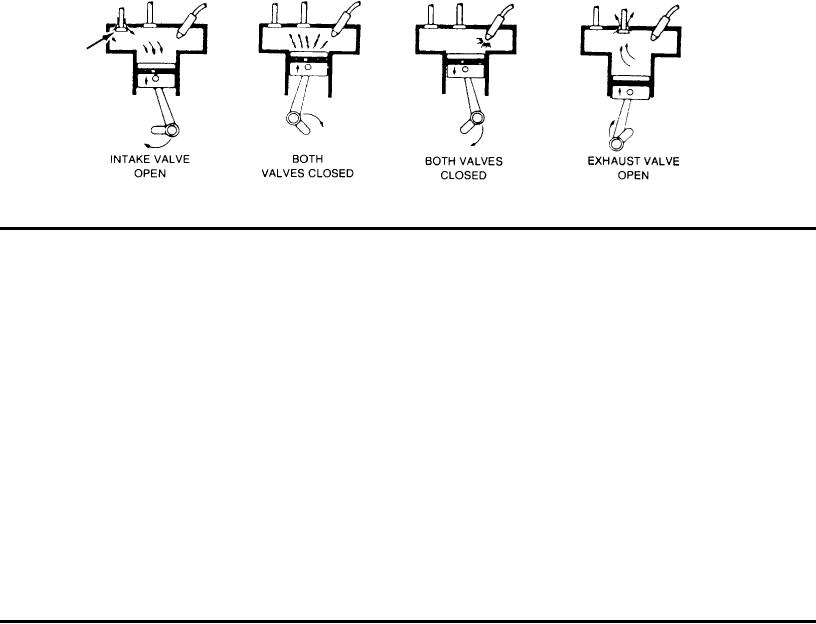
TM 5-4220-211-12&P
Section I
GENERAL INFORMATION
A-2.
DIESEL 4 CYCLE OPERATION
Farymann engines, like their larger brothers in automotive, agricultural and industrial equipment, are 4 cycle diesels.
These four cycles, or strokes, are intake, compression, power and exhaust.
a. The intake stroke begins with the piston moving down, creating a vacuum which draws air through the open
intake valve into the space above the piston.
b. With both valves closed, the piston rises, compressing the air into the very small space remaining between
the piston top and cylinder head and causing a tremendous rise in air temperature.
c. The fuel injector now sprays a fine mist of diesel fuel directly into this space, where the high temperature of
the compressed air causes it to ignite and drive the piston downward.
d. After the piston has reached the limit of its downward travel, momentum causes it to begin moving upward
once again. At this point, the exhaust valve opens and the piston forces out all of the burnt gases, completing one cycle.
Table A-1. PREVENTIVE MAINTENANCE
Daily:
Check engine oil level.
Oilbath aircleaner - check oil level, if atmosphere is dusty, clean daily.
Drytype aircleaner - under (lusty conditions check daily, renew paper cartridge if
necessary
After 20 hours:
Change oil and check valve clearance on all new or rebuilt engines. Check all nuts and
bolts for tightness (for tightening torques see chart page 3).
Every 100 hours:
Change oil
Check V-belt tension (generator, waterpumps etc.)
Oilbath aircleaner -- clean thoroughly (earlier when necessary)
Drytype airfilter - renew paper cartridge if necessary
Check valve clearance (engine cold).
Check all fuel lines for leakages
Under dusty conditions: clean cooling air intake, blower in flywheel and cooling fins on
cylinder and cylinder head
Every 300 hours:
Change oil
Renew oil filter (2-cylinder engines only)
Clean oil strainer
Flush crankcase (if sludge is present)
Check decompression device
Every 500 hours:
Check and clean crankcase breather
Clean fuel tank
Fuel filter - check and renew cartridge if necessary
A-2

